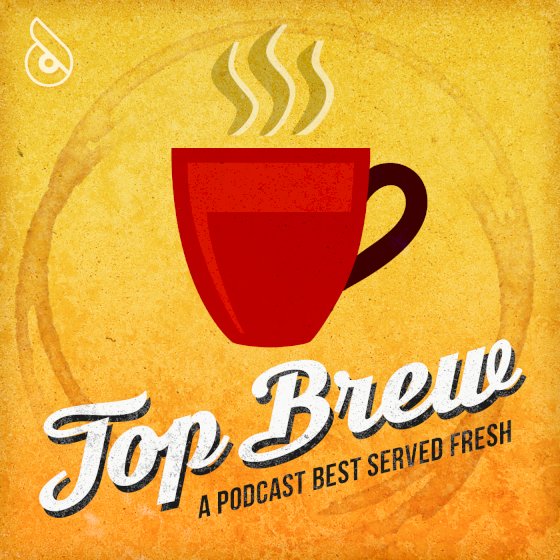Don’t Flush Out Your Lightbulbs
Highlights and Show Notes
Many people concerned about their health are wary of coffee. They complain that they experience headaches, the jitters, muscle tension and upset stomach. We’ve previously discussed the side effects of caffeine and the impact coffee’s other ingredients make on your heart and blood, but we haven’t addressed the upset stomach issue.
All of these ailments can happen for different reasons and most have been well-researched. Monica Reinagel, known as the Nutrition Diva of the ‘Quick and Dirty Tips’, investigated the stomach ache concern, found why it’s happening in the first place (it’s not what you think) and offered some helpful ways that you can enjoy coffee without the side effects.
In today’s show, we look through the points that Monica makes in her article and add our colorful commentary. Enjoy!
Let’s stop listening to misinformation
Before we get to the scientific results found concerning the stomach problems, let’s clear the air of hearsay. A lot of people spread the word that X is not healthy without having scientific evidence to support their assumptions.
We’re talking about the acid in coffee today. ‘Everyone knows that coffee has a lot of acid that can harm you’. Do we, though?
The fact of the matter is, everyone says that coffee has a lot of acid and that it causes health problems. Even your taxi driver can offer advice like ‘Stay off of caffeine and coffee because it’ll eat a hole in your brain and your stomach’.
We strongly encourage you to not take hearsay advice. When everyone’s saying something, but no one knows the scientific evidence to support the claim, you would be better off to question what people are saying. ‘Coffee will upset your stomach because it has harmful acids’ is such a statement that gets around that no one has support for.
The fact of the matter is that coffee doesn’t directly cause a stomachache because of high amounts of coffee-related acids, and we know this from scientifically accurate research available today.
There are many other examples of such hearsay concerns, like…
Are we drinking too much water?
Nobody really knows, eh? I mean, there was that guy that once warned Joe that ‘You can drink too much water and flush out your lightbulbs’. That sounds really bad, doesn’t it?
The truth is that you should drink enough water to be hydrated and stop, right? Some doctors recommend more, some recommend less. No one recommends abstaining from water, and no one recommends that you abstain from water when you’re thirsty. Drink enough that you’re not feeling faint or disoriented. Drink enough that you aren’t taking too many trips to the restroom, but you’re at least making a few trips to the restroom each day.
Point is: Some people need more water and some need less. Our children don’t warrant drinking two liters of fluids a day, but we grown-ups do. It’s a matter of how much will it take to survive and improve the quality of my life? When you’ve reached the point that you’re not pale from dehydration, you’re probably all set.
And we really want to know: What are our lightbulbs and how can we prevent flushing them out???
Do we need to worry about molds and pesticides?
There’ been scares for what happens to coffee beans on the plants, what happens to them on the farm during processing, and so forth. We used to think that you had to be careful of pesticides, molds and other contaminants.
The truth is that during roasting most of the cruft that can be in or on the beans is baked off into a vapor. “They’re subjected to an insane amount of heat,” Eric explains. You needn’t worry about molds surviving the cooking (roasting) process. Pesticides become inert or vaporize as well.
Are we saying it’s healthy to consume whatever else is left in the beans? No, but what we are saying is that toxins and germs and molds and the like (all harmul somehow) are in trace amounts in the air, water and other consumables that you’re exposed to every day. There’s not more of them in your coffee than in your eggs you had for breakfast, or in the water you drank yesterday at the office.
Contamenants in some amount are regularly making their way into your bloodstream no matter what you do. What are you going to do about it? We suggest that you keep drinking coffee in spite of pesticides or molds that might be present. And we also suggest you keep breathing the polluted air, because there isn’t any air that doesn’t have some trace amount of something bad for you to breath in it.
Do we need to worry about caffeine overdose?
Many people think that you can consume so much caffeine that it will cause permanent damage to their organs, but this is not really the case.
Again, this comes up because of hearsay. People hear that caffeine is bad for them from their parents when they’re young. Of course your parents told you not to drink coffee then because they wanted you to get some sleep at night before school the next day. They told you that too much caffeine was bad for you, and you figured that they had medical reasons for using caffeine in moderation.
Since then, you grew up thinking that this was scientifically supported, that it’s possible to consume enough caffeine that it can handicap or kill people.
Yet, Science has proven that it would take more caffeine than you’re physically capable of maintaining in your bloodstream to cause irreparable damage. You’ll pee most of it before your biologically screwed up.
Isn’t coffee acid irritating my stomach?
We recommend that you read Monica’s article for a detailed explanation. To sum up, coffee acids will not hurt you or upset your stomach anymore than other fruits and vegetables.
Coffee usually grows in a warm tropic environment. It has a similar pH level to carrots and bananas. The worst coffee beans have a pH level of 4.7, which is the same as most bananas. Are you worried about the acid in bananas hurting your stomach? Probably not.
For a quick high school chemistry review, Eric says that, if his memory serves him, 7.0 is about the median of pH levels. The lower the number the higher the acid. A level of 1.0 would be very high.
When coffee upsets your stomach, it’s not that there’s a high level of harmful acids in the beverage that cause stomachache.
Gastric Acid versus Chlorogenic Acid
Gastric acid is the stuff your stomach produces all on its own. It’s an essential part of digestion. When chlorogenic acids in your food and beverages are mixed with gastric acid, you experience a mild upset stomach which may lead to heartburn. The more the gastric acid is bonding to the chlorogenic acid from your beverages, the more upset you’ll feel.
NMP is an ingredient in coffee that can satiate the acids warring in your tummy. The more of it in the beans, the less irritated the digestion process will be. This is why some coffee will upset you more than others. The beans aren’t all the same, and many of them have enough NMP to keep your stomach comfortable.
Sadly, most coffee products don’t identify how much chlorogenic acid or NMP they have, so you’ll have to find alternative ways to dampen the problems your stomach juices are causing.
Darker roasts help
Medium roasted coffee has more of the chlorogenic acid than darker roasts. Roasting beans burns down all of the makeup of a coffee bean. This is a good thing because along the way the beans’ molecular order shifts around. This produces their rich roated flavors. Without roasting, coffee beans taste very bland.
Roasting accentuates all flavors, including citric kinds. The flavor of acidity has little to do with the actual acid in the beans, but what’s subduing the citric flavor in darker roasts is also reducing the chlorogenic acid. Less chlorogenic acid means less gastric acid irritation.
Lactose helps
When in the Navy, Eric found that he was getting upset stomach. He attributed it to his coffee intake. Rather than drink less coffee, he chose to add milk to see if it would help settle his stomach. It took several days of new coffee with milk, but eventually his stomach stabalized.
Proteins found in dairy products bind with chlorogenic acid. When this happens, it’s not possible for gastric acids to negatively react to coffee’s acid. Your stomach remains settled and the coffee won’t give you heartburn.
But in general, Eric was drinking too much coffee in the Navy. Like most officers do, with their arms frozen in The Coffee Mug By My Side position.
Cold brewing helps
Tis the season to drink coldbrew, and it will help your upset stomach. Coldbrew is a mild brew method. There isn’t as much extraction from the beans.
This makes the coffee smoother, less acidic and less apt to upset your tummy. Use darker roasts with a coldbrew method and you’ll be set. Or to make the coffee even less acidic, add some cream and there’ll be next-to-no acid left to agitate your stomach.
Rabbit trail: Pepsi isn’t a ‘Southern Tradition’
Eric recently saw a banner ad for Pepsi claiming to be a southern thing. Sorry, Pepsi Cola Co., but none of us here in Georgia believe you.
Maybe you’ve fooled people that moved to Atlanta from New York in the last 20 years, but native Southerners know that Coca-Cola is headquartered in Atlanta and has been the backbone of the South for more than 100 years. And the Carolinas are known for Cheerwine.
That said, Pepsi is proudly promoted on the side of Marietta’s landmark that KFC calls The Big Chicken. It always struck us as odd that ‘Pepsi’ was written on the chicken.
Another Rabbit trail: What’s a Wordle?
A wordle is a collection of words that together describe a topic, business, or cultural trend. They’re stacked in horizontal and vertical and diagonal ways, mixing up fonts and colors to make them look busier or more sophisticated, depending on the intent. Presenters often use wordles for word association.
And you can easily create your own at Wordle.com.
Gas Station Coffee
Thrasher Coffee is sponsoring our review of several coffees from around the world. So far, we’ve taste tested beverages from restaurants, online subscriptions, and this week, we’re adding local gas station’s to the lineup. Uh, thanks a lot, Thrasher, we guess.
RaceTrac’s Regular and Columbian (Bleh!)
We have with us a cup of regular and a cup of Columbian brewed coffee from the local RaceTrac. Both were fresh, as they like to point out all over their cups (the wordles say so). We left our coffees black for the purposes of our taste test.
Like any gas station coffee in the United States, these drinks aim to be the most convenient coffee around. They’ll never be great coffee beverages, but what they are is available any time at any place. The electric drip brew is easy to make for gas station attendance, cost them chump change to keep well-supplied, and they have a huge markup value.
When we picked up RaceTrac coffee, there were six roasts ‘freshly’ brewed for the choosing. This is considerably more roasts at the ready for customers than you will find at your local coffeehouse.
They supply all the accouterments that come standard at a gas station. You can grab artificial sweeteners, sugar, so-called cream, flavored cream, et cetera. Hey, Krispy Kreme donuts are in the cabinet next to the coffee. If that’s not convenient, what is?
Of course, the coffee there tastes poorly. Neither of us drank more than four swallows of our cups. They didn’t smell right either. Stale bread crumbs from a dirty countertop came to Joe’s mind as he took his first sip. Eric likened the aroma to dirty socks.
But gas station coffee serves its purpose in America. There are many of us that don’t have the time or budget for fussier coffee from Starbucks, let alone a Keurig or a craft coffee maker like a French press. Many people are getting up at 4 AM and have a long drive ahead of them to work, with a routine of stopping at the gas station along the way.
Their quick-and-dirty solution to coffee meets a real need for many people with an on-the-go lifestyle. If you care about convenience, then they have the caffeine kick to boot.
The Difference Between Fast and Craft Goods
Eric points out that this is a product that is made for a specific type of customer and coffee drinker. No one coffee product is the solution for them all.
Just as it is for the beer market, you have cheap and convenient drinks for the masses and you have fussy craft drinks for a few. The majority of people don’t appreciate finely-tuned high-quality goods, like craft beer.
To those people that do appreciate the good stuff, it’s really difficult for them to understand the people who don’t. Who wouldn’t want something that tastes great?
And for people who don’t like beverages that cost an arm and a leg, they look at those who do and shake their heads and despise the idea of handcrafted drinks. What they see is needless toil and extra care and added expense for something that they simply don’t understand or taste in the cup.
What they want is what they’ve grown up with, what their parents drink, and what’s familiar to them. Gas station beverages are the most readily available and affordable coffee around, like the bag of pre-ground Community Coffee at your local quick mart or super store. It’s as American as ballpark hotdogs. People highly value convenient coffee. “What was good enough for Grandpappy is good enough for me!”
But nostalgia will not be enough to keep people hooked on convenience forever. Joe remembers that in his childhood, he often had coffees from gas stations when he’d go out late to work with his dad. No amount of fond memories or familiarity with gas station beverages will keep Joe’s loyalty today.
Every year that goes by, more people take notice of the craft coffee movement. People can tell subtly that there’s something qualitatively unique and appealing. Quick and convenient coffee drinkers may not switch from RaceTrac to Blue Bottle, but they’ll probably start to appreciate the coffee that’s a little better.
Even K-cup coffee, over gas station coffee, is a huge leap of progress for some coffee drinkers in America today.



